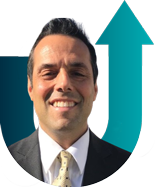Set Budgets to Avoid Unwanted Debt
It’s pretty certain that nobody wakes up one day, pulls back the curtains, lets the sunshine in and says out loud, “What a great day to fall heavily into debt! I think I’ll make today the day I start building a big pile of unwanted debt that will burden me for years!”
Doesn’t happen like that, and that’s the thing. Building a pile of onerous debt usually happens by accident – through a combination of recklessness, carelessness, overconfidence and misfortune – often starting slowly but with momentum that builds over a period of years.

Accumulating unwanted debt can be like a silent killer, a disease that incubates with only dormant symptoms that eventually surface as a serious financial illness. So how do we prevent from getting financially sick? Let’s take a closer look.
Develop a Written Budget
Rule number one toward avoiding unwanted debt is to manage your money responsibly by having a written monthly budget in place. There’s nothing sexy or exciting about building a budget, but that’s not the point.
The point is to stay financially healthy and out of trouble. A good budget sets boundaries that keep you from spending more each month then your full amount of disposable (after-tax) income. Therefore, take the time to itemize all of your monthly expenses against all of your sources of monthly cash flow.
Your monthly expenses will include necessities like housing, food, transportation, auto insurance, utility bills, cable, cell phone, clothing and gasoline, as well as “wants” like restaurant meals, concerts and movies, along with trips to the coffee shop and bar.
ABC
Itemize and Heed the 50/30/20 Rule
Your comprehensive list of expenses needs an accurate monthly figure next to each individual expense. Take the necessary time to itemize properly and add everything up. If you’re already under your level of disposable income, great! If not, recognize that some further tweaking is in order.
Here is where the 50/30/20 rule comes into play. Simply put, this rule specifies that 50% of disposable income be allocated to necessary expenses, 30% be allocated to “wants,” and 20% be allocated to debt repayment and savings.
Drawing a clear line between necessities and wants is important here, as is automating the debt repayment and savings of 20%. If necessities extend beyond 50% of after-tax income, the shortfall hit goes to “wants” – not to debt repayment and savings.
Stay Out of Credit Card Debt
Rule number one for managing credit card debt responsibly is to live within your means. This implies that you not use credit cards with reckless abandon, purchasing items and experiences that otherwise could not be paid for in cash.
A good rule of thumb when using your credit card is to ask yourself whether you have the cash in your bank account to cover the cost of the impending purchase. If you do – why not just use your debit card instead? If you’re reluctant to use your debit card or don’t actually have the extra cash in your bank account, then that’s an indication that the purchase you’re about to make is one that is beyond your means.
These type of credit card purchases contribute to an outstanding debt balance that accumulates high interest expense and can become a silent killer as you attempt to move forward financially. Do not fall prey to the short-term temptation of using credit cards inappropriately at the expense of your long-term financial well-being.


More Steps to Take to Avoid Unwanted Debt
Stay employed! Do a good job at work, and build positive relationships in your office and within your field that can serve as an insurance policy in the event misfortune surfaces. Many talented professionals get laid off when times get tough for their employers, irrespective of their talents and abilities.
Therefore, it is important to stay abreast of developments within your field while fostering your professional network. Meantime, build and maintain an emergency fund to buffer expenses in the event that a job loss, unexpected auto repair or medical emergency suddenly surface. Make it a priority to set aside a minimum of three to six months of budgeted expenses in the form of emergency savings that will keep you out of unwanted debt should misfortune hit.
Watch That Student Loan Debt
Student Loan Debt is another silent killer, especially since it’s often perceived as “innocent,” as “good debt.” After all, borrowing to pay for college isn’t the same thing as ringing up credit card charges for a bunch of restaurant and bar visits, right?
It’s not, but often times the amount of debt associated with student loans is far greater than mismanaged credit card debt. For instance, in 2017, almost 70% of college graduates left school with student loan debt approximating $35,000.
This startling statistic speaks to the need of knowing how to mitigate student loan debt as a young person who isn’t always equipped to understand the seriousness of financial obligations.
There are several things to be aware of when it comes to student loan debt. For starters, be sure to use student loan funds only for educational expenses like tuition and books. Never use student loan funds for “wants” or fun activities while at school. Getting a part-time job while in school will help cut down on the amount necessary to borrow.
Recognize as well that tuition costs at two-year colleges – community colleges and technical schools – will be far less (approximately 60% cheaper) than those at four-year colleges. Factor in living at home while saving on room and board and the prospect of taking on greater unwanted student loan debt is substantially reduced.
Taking AP courses when available while in high school will reduce the amount of credits that need to be taken while in college, further reducing tuition costs and the amount of student loan indebtedness. Finally, choosing a marketable major – one related to computer science, science or math can make a difference in terms of landing a job more readily upon graduation, making it easier to pay off accumulated student loan debt.

Are you in debt? we can help

About The Author: Steven Brachman
Steven Brachman is the lead content provider for UnitedSettlement.com. A graduate of the University of Michigan with a B.A. in Economics, Steven spent several years as a registered representative in the securities industry before moving on to equity research and trading. He is also an experienced test-prep professional and admissions consultant to aspiring graduate business school students. In his spare time, Steven enjoys writing, reading, travel, music and fantasy sports.
Get Debt Relief
Speak with licensed debt specialists dedicated to guiding you toward financial stability every step of the way.

Ready To Get Started?
See if you qualify for debt relief. Get a Free savings estimate to see how quickly you can be debt free.
Embrace financial freedom with our tailored solutions, expert guidance, and unwavering commitment to your success.
Experienced Professionals
Our experienced team has helped thousands of clients successfully eliminate debt and regain financial freedom.
Customized Solutions
We know every financial situation is different, so we design personalized debt relief plans to fit your specific needs and goals.
High Success Rate
Our proven debt relief strategies deliver real results. With a strong track record of success, we help clients achieve lasting financial stability.
Confidential Consultation
Your privacy is our priority. All debt relief consultations are 100% confidential and handled with the highest level of discretion.
Explore other blogs











